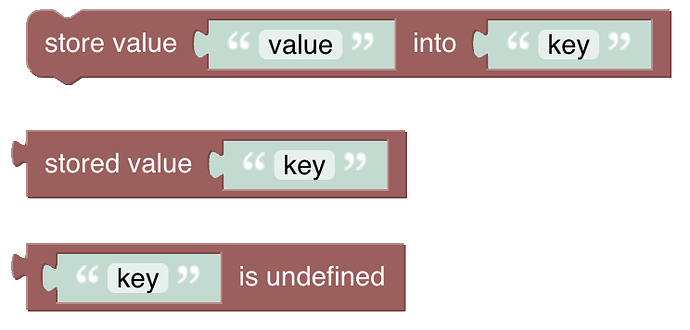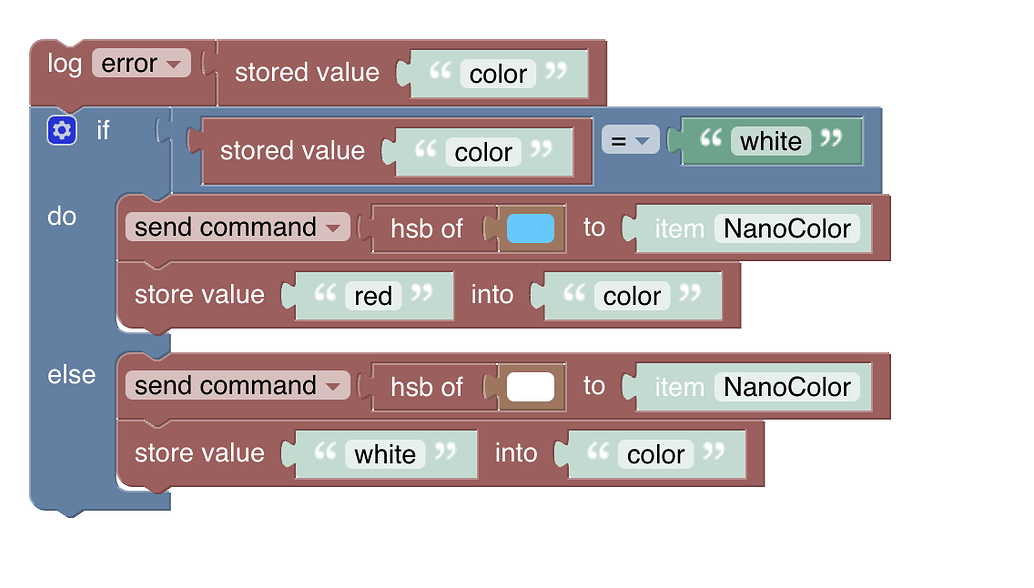This page is part of archived documentation for openHAB 3.4. Go to the current stable version
# Value Storage
# Introduction
These blocks enable storing information for a rule that is kept after the rule has run, so it can be reused when the rule is run again later in stateful way. Basically a value storage can be perceived as a global variable for the rule instance.
- The values are persisted as a part of the instance of the rule
- Modifying the rule during development creates a new instance which means the value is reset.
- Restarting openHAB creates a new rule instance which also means the value is reset
- In most cases both situations are negligible for many rules.
- If you need full persistence of values that can be used across rules you need to persist the value in one of the persistence engines like MapDB
- By default the value is undefined. To check if a value is undefined, use the special "is undefined"-block
# Overview of the Value Storage blocks

# Value Storage Blocks
See also the short video part about Global Value Storage (opens new window)
# Store Value

Function: Stores a value under the key name
# Get Stored Value
Function: Retrieves a stored value by the key name
# Check if Value is undefined
Function: Checks if a value is undefined
# Example 1: Initialize a key if not set

# Example 2: Use the rule instance variable to remember a color that has been set

# Return to Blockly Reference
Caught a mistake or want to contribute to the documentation? Edit this page on GitHub (opens new window)
